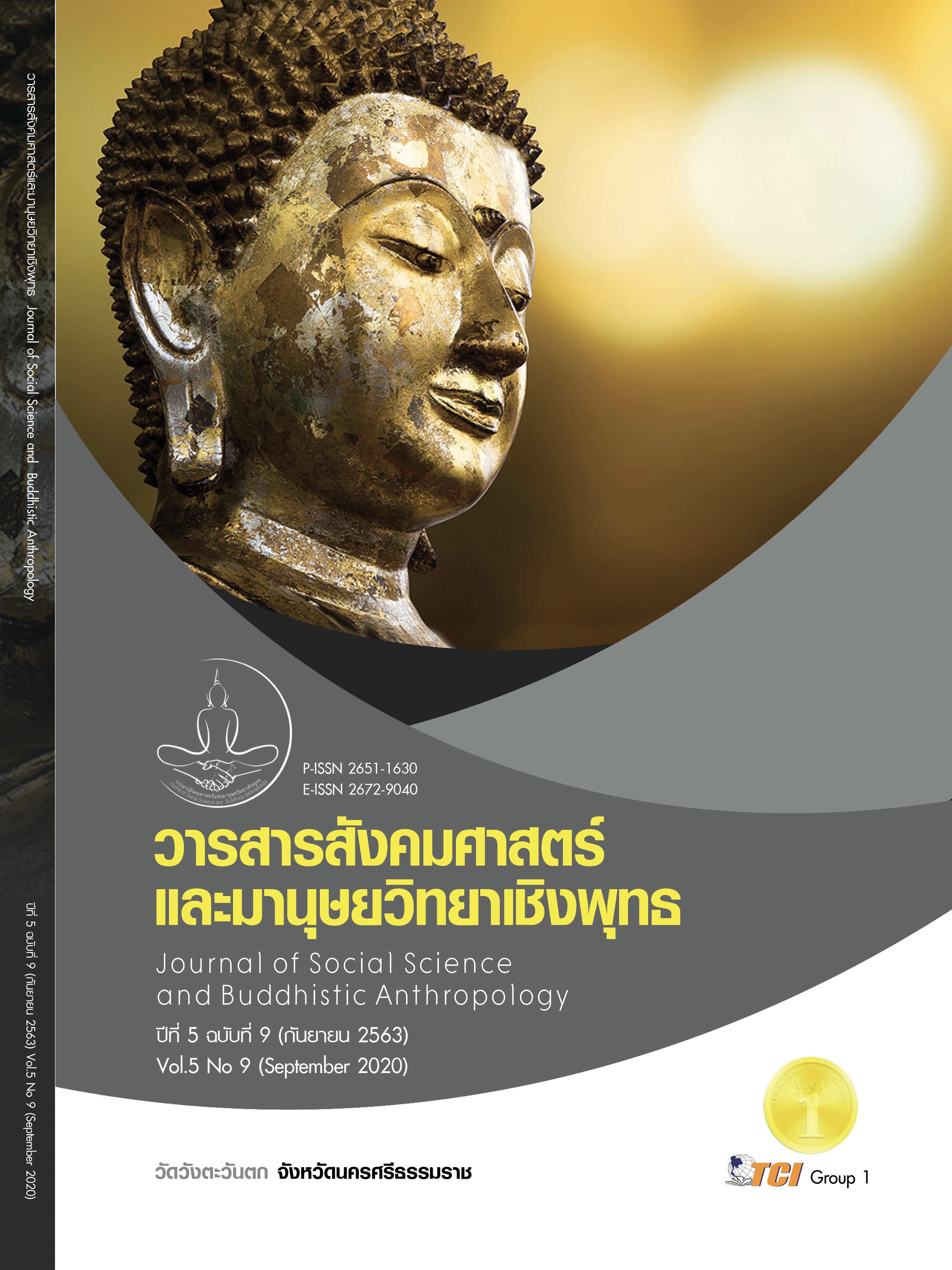STRATEGIES FOR IMPROVING EDUCATION QUALITY OF SCHOOLS UNDER THE KRABI EDUCATIONAL SERVICE AREA OFFICE
Keywords:
Strategy, Educational Quality Development, SchoolsAbstract
The purposes of this article is to study the strategic building components Create strategy And check the suitability of the educational quality development strategy of the schools under the Krabi Educational Service Area Office. Using integrated research methods. There are both quality and quantity. There are 3 steps: 1) Study the strategic building elements. 2) Create strategy and 3) Check the suitability of the school's educational quality development strategy Under the Office of Krabi Educational Service Area. All informants consist of administrators, deputy or chief academic departments and teacher representatives, Director, Deputy Director and Director of Policy and Planning Group, Krabi Educational Service Area Office , Education and Director of Policy and Planning Group, Krabi Provincial Education Office and a total of 83 experts, specifically. By in-depth interview, Workshops and seminars based on experts and experts. Data were analyzed by data distribution, percentage, mean, standard deviation and content synthesis. The results of the research were as follows: 1) The researcher gained knowledge on the process of creating a strategy and determining the quality development direction that met the goals for the educational quality development of schools under the Krabi Primary Educational Service Area Office 2) Strategies for improving the quality of school education Under the Krabi Primary Educational Service Area Office, the S - CoMP strategy consists of 4 issues. 2.1) to promote the development of potential of learners of all ages thoroughly and with quality (S = Student) 2.2) Create cooperation in the form of a network for educational quality development (Co = Cooperation) 2.3) Develop an efficient management system (M = Management) 2.4) Promote and develop teachers and personnel to have potential and competency in accordance with professional standards (P = Personal). From the seminar based on experts and experts, it is found that it is suitable There is a possibility Is consistent And useful in all areas. 3) The S - CoMP strategy is appropriate. There is a possibility It is consistent and useful in every strategy.
References
จรูญ จับบัง. (2555). รูปแบบการพัฒนาคุณภาพการศึกษาตามยุทธศาสตร์การพัฒนาโรงเรียนขนาดเล็ก ด้วยกระบวนการวิจัยเชิงปฏิบัติการแบบมีส่วนร่วม สังกัดสำนักงานคณะกรรมการสถานศึกษาขั้นพื้นฐาน. ใน วิทยานิพนธ์ปรัชญาดุษฎีบัณฑิต สาขาวิชา การบริหารการศึกษา. มหาวิทยาลัยบูรพา.
จีระ พระสุพรรณ. (2554). ยุทธศาสตร์การพัฒนาคุณภาพโรงเรียนขนาดเล็กที่มีประสิทธิผล. ใน วิทยานิพนธ์ครุศาสตรดุษฎีบัณฑิต สาขาวิชาการบริหารการศึกษา. จุฬาลงกรณ์มหาวิทยาลัย.
ธีระ รุญเจริญ. (2550). ความเป็นมืออาชีพในการจัดและบริหารการศึกษายุคปฏิรูปการศึกษา. กรุงเทพมหานคร: ข้าวฟ่าง.
นที เกิดอรุณ. (2555). ยุทธศาสตร์การพัฒนาคุณภาพการศึกษา. วารสารการพัฒนาทรัพยากรมนุษย์, 8(1), 96 - 106.
วรรษมน จันทร์โอกุล และคณะ. (2561). ยุทธศาสตร์การพัฒนาคุณภาพผู้เรียนของกลุ่มการศึกษาทางไกลผ่านดาวเทียม: การวิเคราะห์ปัจจัยเชิงสาเหตุแบบพหุระดับและการวิเคราะห์ด้วยเทคนิค TOWS MATRIX. วารสารวิจัย UTK ราชมงคลกรุงเทพ, 12(1), 81-96.
วิรัตน์ อุทาทิพย์. (2559). ยุทธศาสตร์การพัฒนาคุณภาพการศึกษาของโรงเรียนบ้านเปลือยดง พ.ศ. 2558 – 2562. ใน วิทยานิพนธ์ครุศาสตรมหาบัณฑิต สาขาวิชาการบริหารจัดการการศึกษา. มหาวิทยาลัยราชภัฏมหาสารคาม.
สำนักงานคณะกรรมการการศึกษาขั้นพื้นฐาน. (2562). นโยบายสำนักงานคณะกรรมการการศึกษาขั้นพื้นฐาน ปีงบประมาณ พ.ศ. 2563. กรุงเทพมหานคร: โรงพิมพ์ชุมชนสหกรณ์การเกษตรแห่งประเทศไทย จำกัด.
สำนักงานคณะกรรมการพัฒนาการเศรษฐกิจและสังคมแห่งชาติ. (2560). ยุทธศาสตร์ชาติ พ.ศ. 2561 - 2580. กรุงเทพมหานคร: พริกหวานกราฟฟิก.
สำนักงานเลขาธิการสภาการศึกษา. (2560). แผนการศึกษาแห่งชาติ พ.ศ. 2560 – 2579. กรุงเทพมหานคร: พริกหวานกราฟฟิค.
Creswell, J. W. & Clark. P. V. L. (2017). Designing and conducting mixed methods research. Thousand Oaks: CA : Sage.
Feng J. et al. (2006). The Impact of TQM Practices. European Journal of Innovation Management, 9(3), 269 - 278.
Highett, N. T. (1989). School Effectiveness and Ineffective Parent's Principal's and Superintendents' Perspectives. Edmonton: Allyn and Bacon.









